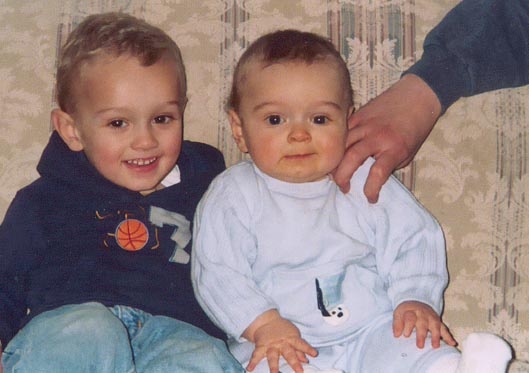The Therapy Sessions
Thursday, March 04, 2004
Why I spank my son
"Today one finds no support for spanking in the scientific literature. This opinion, shared by mental health and child development experts, and other professionals in related fields, has been evolving for many decades and its beginnings can be found centuries ago."
- Jordan Riak
Some parents may never need to spank their children, but I do not count myself among them (though I wish I could). There are times when a child's obedience can't be iffy idea, particularly when the child's safety is at sake. When I tell my son to get out of the road, I need to know that he is not going to argue. I may see a car coming.
That is why I first spanked Sean. Spanking is not appropriate for all parents, but it has worked for me.
The latest "advice" on spanking is exactly the kind of pseudo-science currently debasing the mental health and child development community: Self-inflated "experts" think parental spanking is abusive. They taint studies with their bias, but an uncritical media trumpets their findings anyway. They acknowledge that spanking does result in "quick compliance with parental demands," but they refer to this as a "short term" benefit that is outweighed by the psychological damage inflicted on the child.
These "scientists" think all children are bratty and inattentive. It's the nature of children, they say. They point to their own as examples, and far too often these children are labeled with fictional attention disorders and drugged into compliance with Ritalin.
My wife and I have been spanking Sean since he was old enough to understand its meaning. We do it only infrequently now, because it is hardly needed. Sean understands a tone in our voice that means we are not kidding. We love him more than we love life itself, but we realize that it is important that he follow the rules of our house. The rules are simple rules for his own safety: he is not allowed to play in the kitchen or in the basement by himself, he must hold our hands when crossing the street or in crowds, and he must never hurt his little brother.
My sons, victims of abuse (Timothy even looks like he knows what tortures await him):

My son is not bratty or inattentive (though like any child, he has his moments). He goes bed when he is supposed to, he stops running when told and he does not talk back to people in authority. He loves to go for walks in the fields with Dad, and make color pictures with Mom. His curiosity knows no boundaries, and by all accounts, he is a happy, well-adjusted boy. I believe his ever-present smile comes from his sense of security, the knowledge that his parents are in control and will keep his home safe and stable.
Loving parents rarely need spank frequently. The mere threat of spanking can work wonders, stopping a child in his tracks.
Try that with a "time out."
Any young child is calculating enough to understand that a twenty-minute "time out" is a small price for the thrill of punching his little sister in the stomach. If the threat of spanking keeps a child from playing with matches or touching a hot stove, so be it.
Betsy and I use "time outs" too, though we prefer not to call them that. The term reeks of psychiatry. We just tell Sean to go to his room.
The most primal parental responsibility is to protect children from their own curiosity. If a child is running toward a dangerous street, "quick compliance with parental demands" is not merely a "short term benefit."
It is a matter of life and death.
"Child development professionals" are so busy thinking for parents that they have forgotten how to think like parents.


